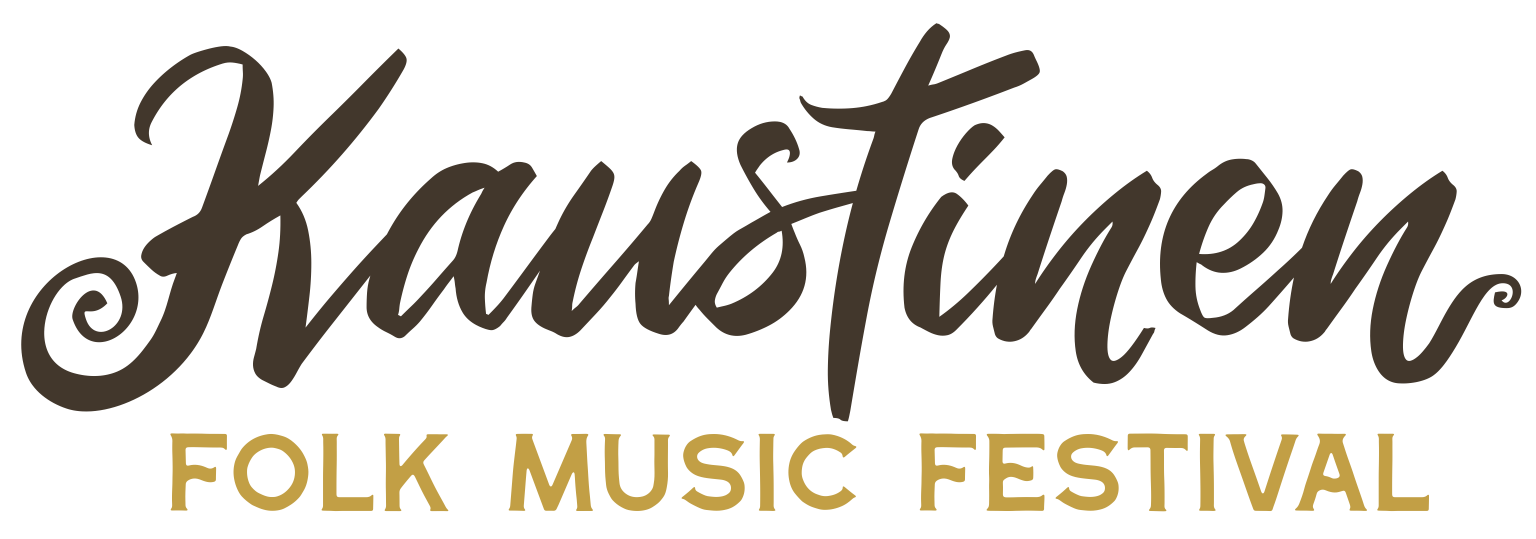Seminars
The Kaustinen Folk Music Festival's seminar programme offers a wide range of perspectives on topics, issues and developments in the field.
The program consists of seven seminars, which are free to attend. The seminars will be held in either Finnish or English. All seminars will be held in the Museum Hall of the Finnish Folk Art Centre unless otherwise stated.
________________________________________________________________________
TUE 8.7. 11.30–13.30
VISIO2030
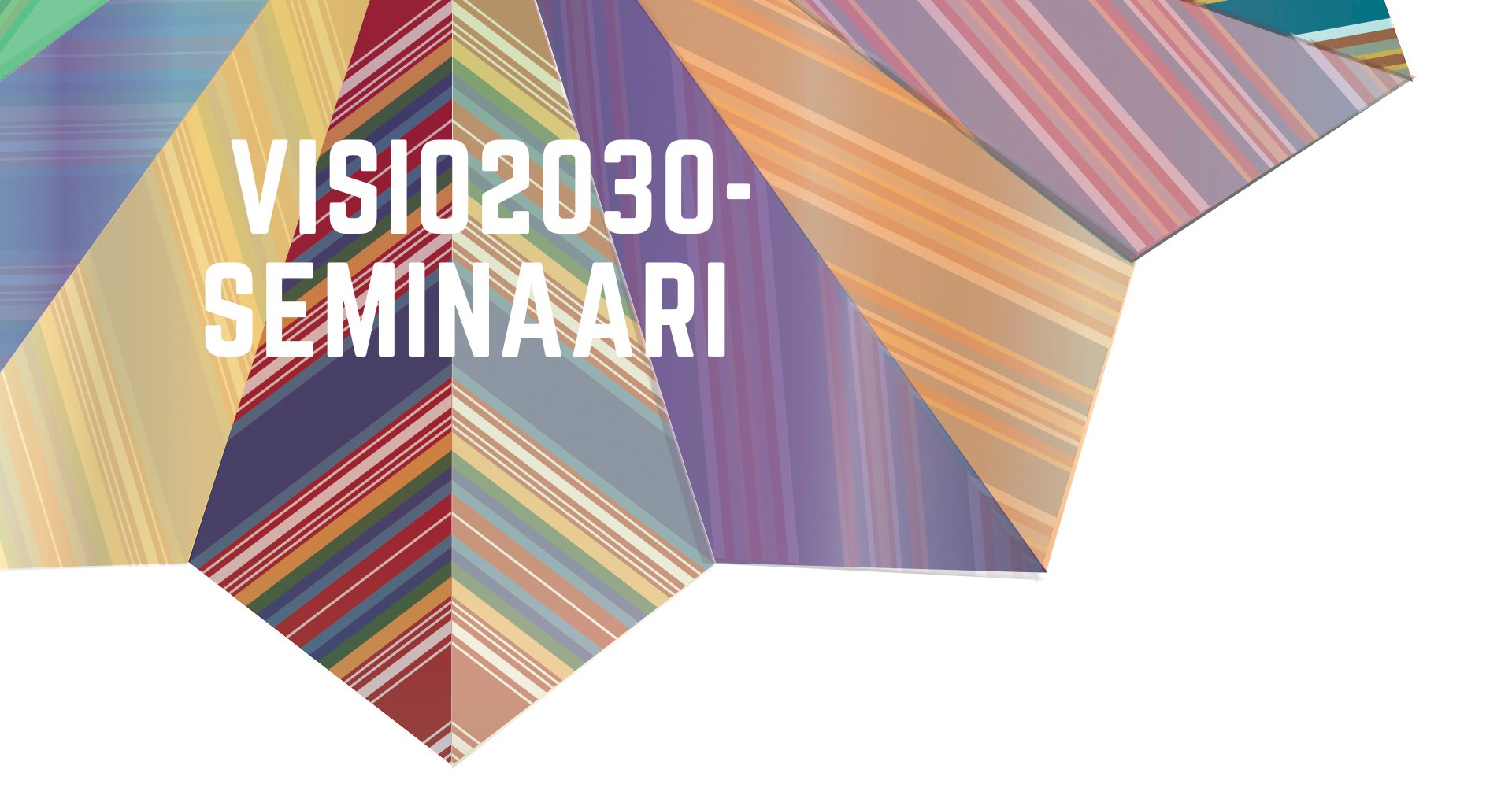
The seminar, which brings together folk music and folk dance actors, will continue the strategic planning for the new five-year period in the field. The funding of the field's organizations has faced fatal cuts, how should actors react to the situation? The seminar is organized by the Finnish Folk Music and Folk Dance Promotion Center and the Folk Music Institute.
11.30 Seminaarin avaus
11.35 Jaana Kari: Suomen Kansanmusiikkiliitto nyt
11.50 Hanna Poikela, Kansanmusiikin ja Kansantanssin Edistämiskeskus, ja Matti Hakamäki, Kansanmusiikki-instituutti: Visio2030 – alan järjestökenttä murroksessa
12.10 Paneelikeskustelu: Kansanmusiikki- ja kansantanssikentän rahoitus, edunvalvonta ja mahdolliset organisatoriset muutokset
13.00 Yleisökeskustelu
13.30 Closing of the seminar
____________________________________________________________________________
WED 9.7. 9.00–10.00
Folkmusic pedagogy seminar
The meeting of folk music teachers will address pedagogical issues related to the field through presentations and discussion.
____________________________________________________________________________
WED 9.7. 11.30–13.30
ICH North – passing on our musical heritage
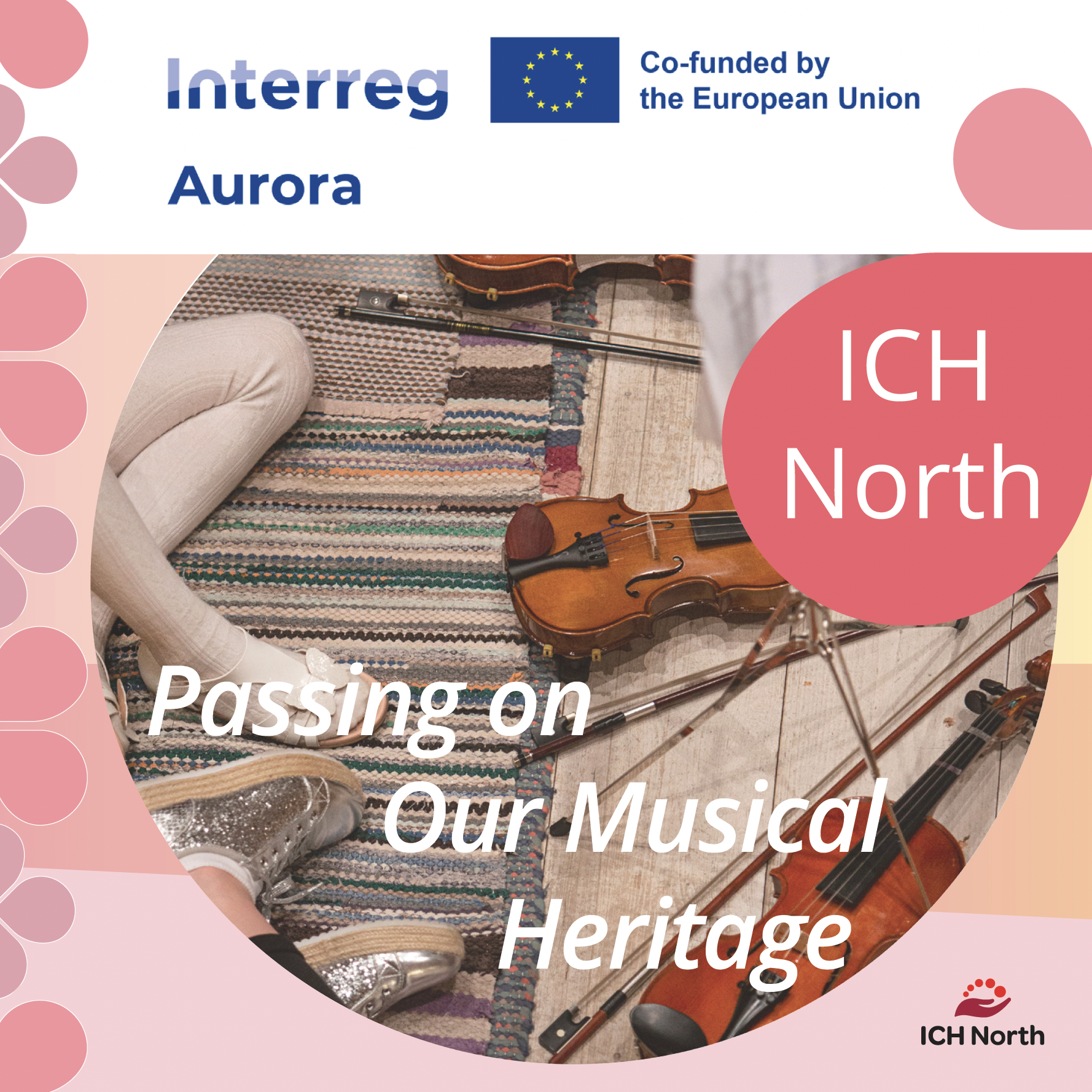
The seminar will review the activities and results of the three-year Nordic Interreg project. How is musical heritage passed down from generation to generation today, how can archive work be carried out in a community-oriented manner, and whether Polish material could be included as a joint Nordic item on the UNESCO Intangible Cultural Heritage List? Seminar language: English.
11.30 Sara Kåll-Fröjdö: Welcome to the seminar – What is ICH North
11.40 Roser Gabriel: Musical living room
12.00 Outi Valo ja Heidi Henriikka Mäkelä: Culturally sustainable field trips to historical folk music
12.20 Bengt Wittgren & Britta Knapp: Polska as living heritage
12.40 Johanna Björkholm: What happens when we pass on traditions
13.00 Annika Mylläri & Kati Hyvönen: Living Musical Heritage open online course
13.20 Discussion
13.30 Closing of the seminar
____________________________________________________________________________
THU 10.7. 11.30–13.30
Cultural Spaces: Digital Innovations & safeguarding ICH
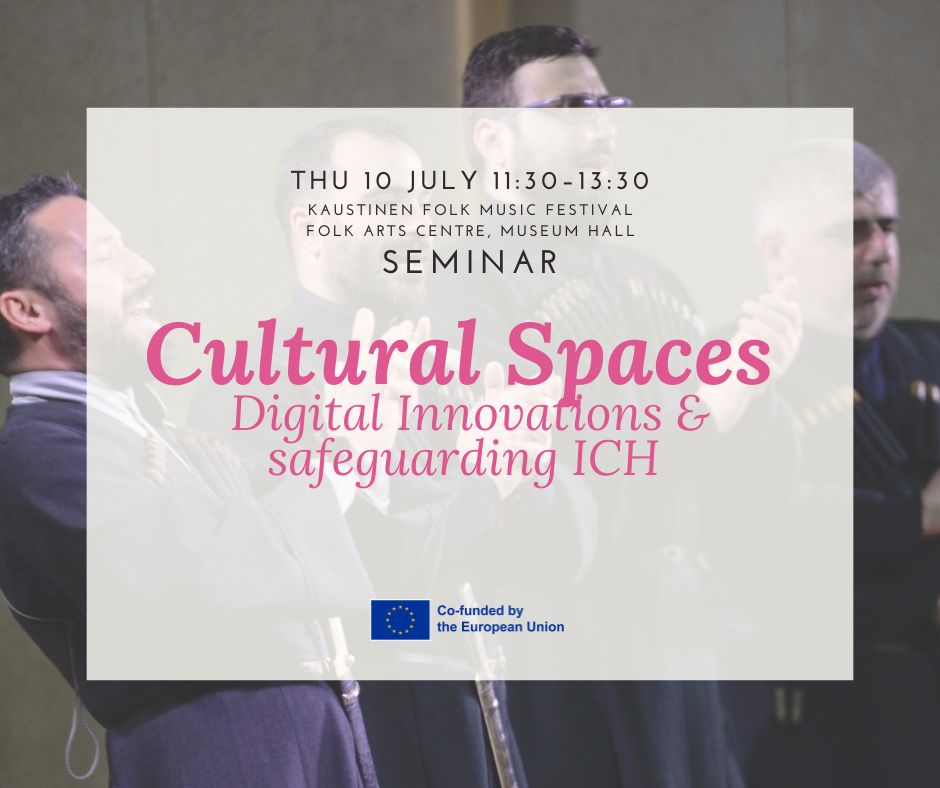
At the Digit ICH Erasmus+ project seminar, representatives of UNESCO intangible cultural heritage sites from, among others, Croatia, Georgia, Slovakia and Latvia will talk about their traditions, their protection practices and related digital innovations. Seminar language English
11.30 Musical opening of the seminar
11.35 Māra Rozentāle : Presenting the Digit ICH Erasmus+ project
11.50 Snježana Bogdanić : Local Approaches from Croatia to Safeguarding and Transmitting Intangible Culture
12.20 Maia Gelashvili: Presenting a film from Georgia: Festival “Nanina”
12.50 Juraj Hamar: Activities of the Slovak Intangible Heritage Centre for a digitization and safeguarding of intangible heritage
13.10 Questions and answers
13.25 Musical closing of the seminar
____________________________________________________________________________
FRI 11.7. 11.30–13.30
Intangible Cultural Heritage – Safeguarding Practices and the Field of Intangible Cultural Heritage in Finland
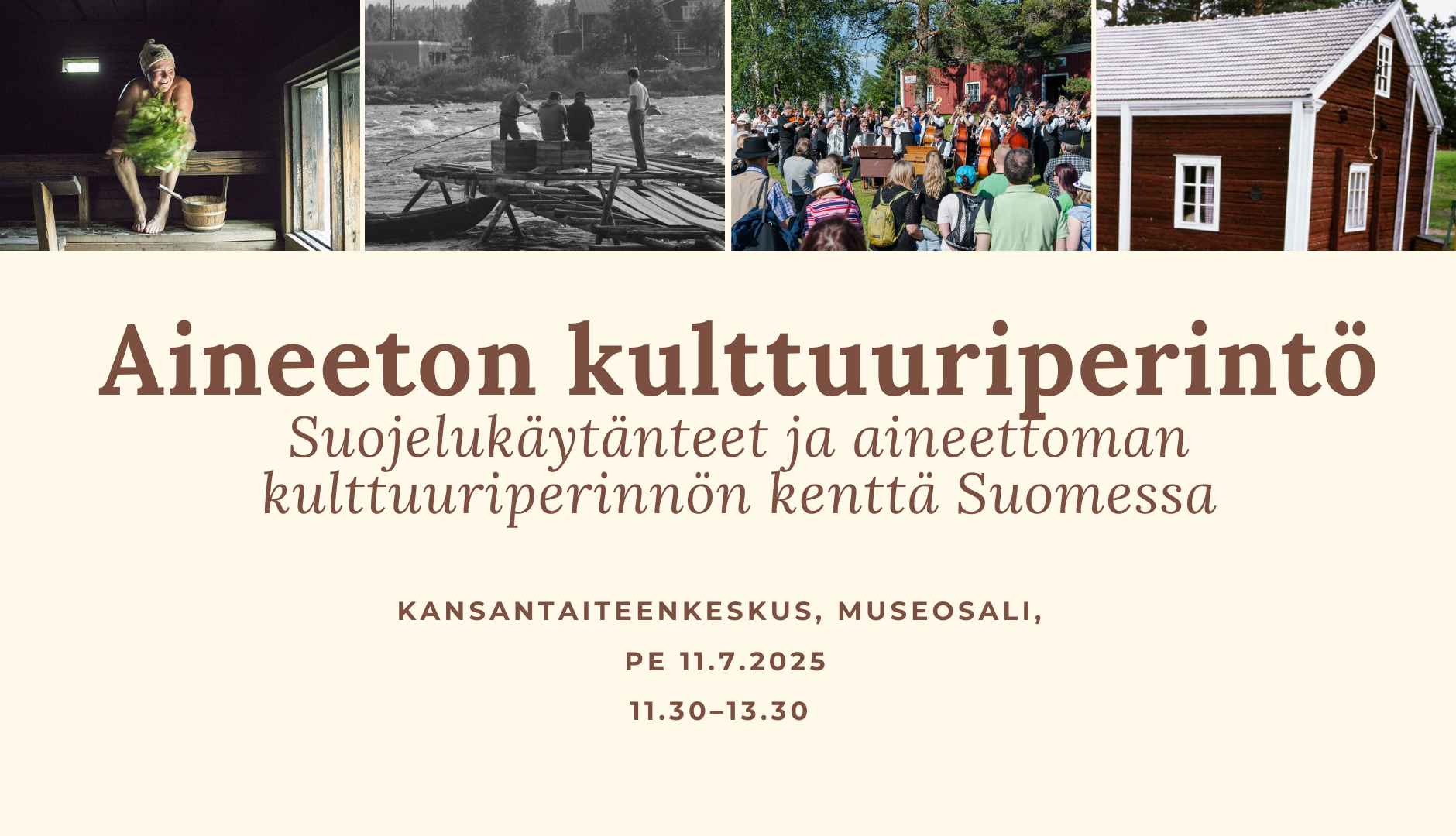
The seminar, organized with the Finnish Association for the Intangible Cultural Heritage, will discuss the common challenges and opportunities in the field, as well as the organization and strategy of the field. The seminar will include speeches from the perspective of organizations accredited to the UNESCO Convention on the Protection of the Intangible Cultural Heritage and the experiences of UNESCO sites. Finland's next possible UNESCO sites will also be considered and mapped.
11.30 TBC, tervetulosanat
11.35 Matti Hakamäki : Suomen aineettoman kulttuuriperinnön yhdistyksen strategiatyö jatkuu
11.40 Kikka Jelisejeff: Käsityökohteita maailmankartalle – mahdollisia luettelointikohteita meiltä ja muualta
12.00 Markku Vaaraniemi: Torniojoen lippokalastus – hakemusprosessin vaiheita
12.30 Taina Hautamäki: Pohjalaistaloverkosto
12.50 Pekka Paasonen: Saunakulttuuri Suomessa ja elävän perinnön yhteistyön mahdollisuudet
13.10 Keskustelua
13.30 Closing of the seminar
____________________________________________________________________________
SAT 12.7. 11:00–13:30
Kansantaiteenkeskus, Kaustinen-sali.
Kaustinen Intangible Cultural Heritage Seminar 2025: Music on the Move – Migration, Resilience and Identity
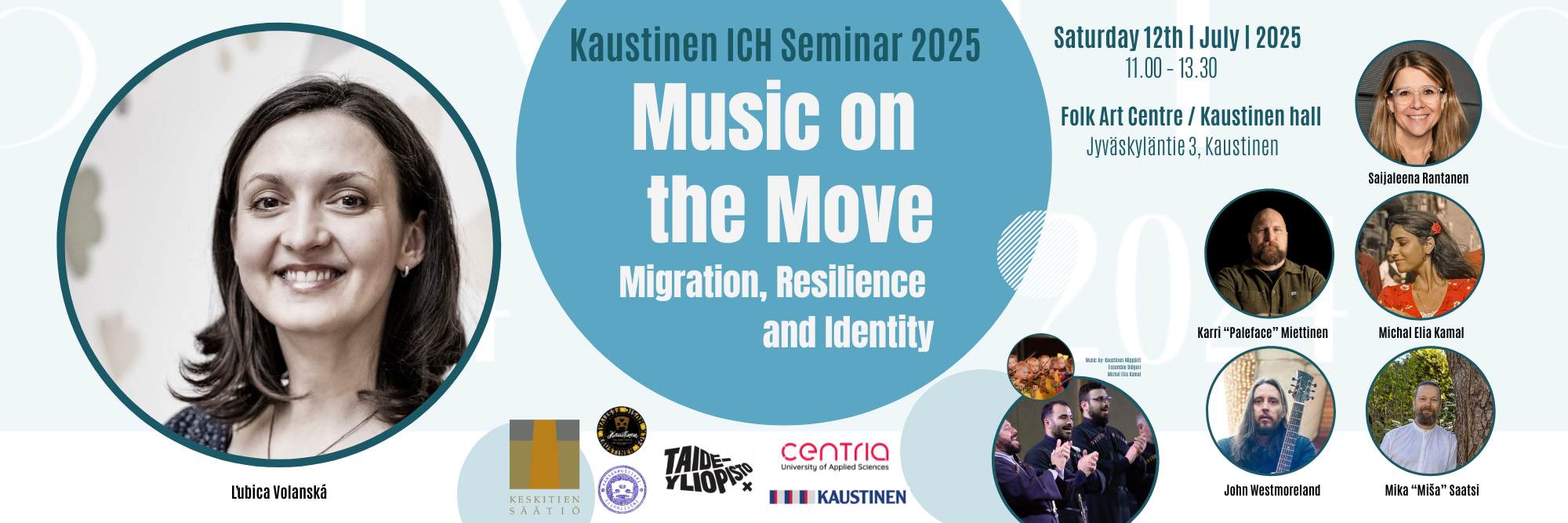
The seminar will focus on the festival's theme of migration this year, especially from the perspective of the protection of intangible cultural heritage. What is the significance of music and musical heritage when people move from place to place? The seminar will be streamed on the Folk Music Institute's YouTube channel. The seminar language is English.
11.00 Matti Hakamäki: Welcome to the seminar
11.05 Children group Näppärit from Kaustinen
11.15 Ľubica Voľanská – Where Migration Studies Meet Living Heritage: Community Building among Ukrainian Refugees in Slovakia
11.50 Ensemble Didgori : Migration songs
12.00 Panel Discussion – Migration, resilience and identity. Saijaleena Rantanen will host a panel discussion where musicians from different backgrounds reflect on the meaning of “music on the move” in their own lives and on how migration is reflected in their music. The panelists are musicians Karri “Paleface” Miettinen, Michal Elia Kamal, John Westmoreland and Mika “Miša” Saatsi.
13.10 Questions and answers
13.25 Closing song – Michal Elia Kamal
____________________________________________________________________________
SAT 12.7. 17.00–18.00
On lähdetty ja palattu – Keski-Pohjanmaan Kulttuuriliitto ry:n seminaari
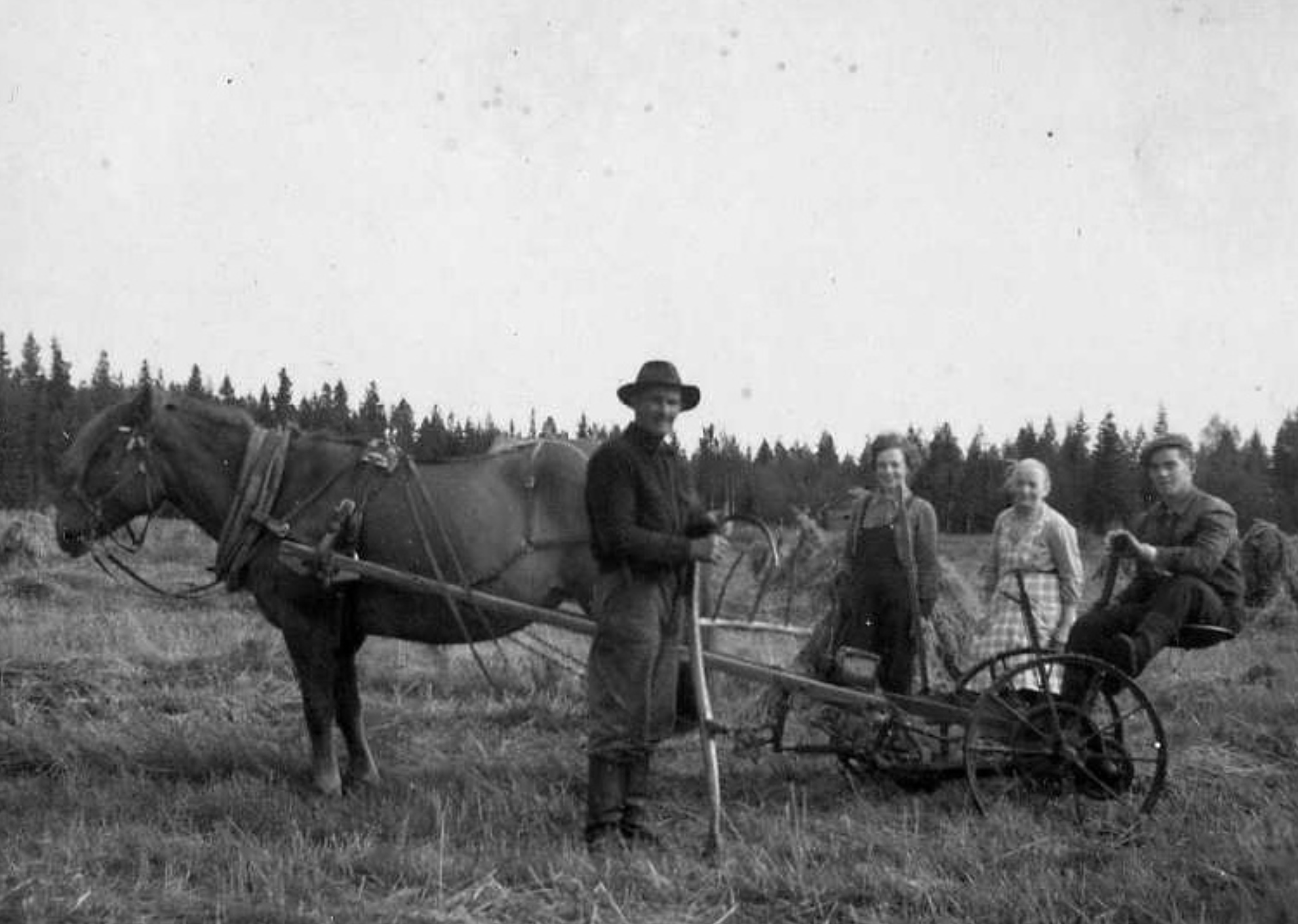
The Cultural Association of Central Ostrobothnia presents its multi-year provincial migration data collection project, which covers the so-called historical Central Ostrobothnia region. The seminar continues the themes of the day's festival seminar – migrant experiences, migration, resilience and identity – addressing them particularly from a historical perspective and focusing on the Central Ostrobothnia region.
